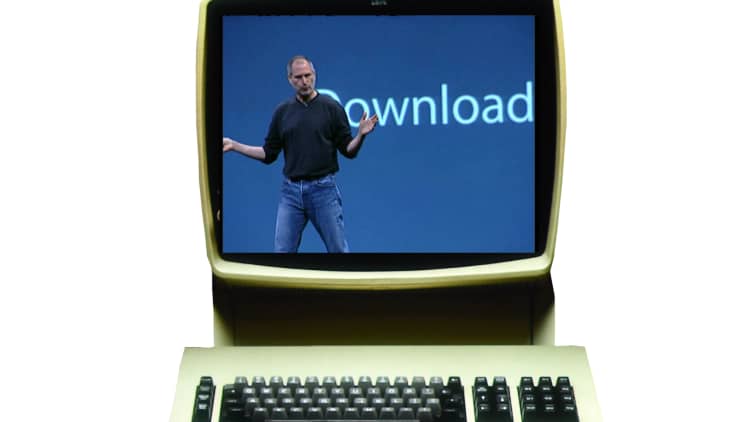Silicon Valley venture capitalist, author and speaker Guy Kawasaki launched his tech career at Apple as the company's "software evangelist." He helped market the original Macintosh computer and grow the company's cult-like following.
During his time at Apple in the mid 1980s again in the early 1990s, Kawasaki worked closely with the late Steve Jobs. The tech visionary taught Kawasaki a few key lessons about leadership and success.
Here are three of the most important lessons Kawasaki learned from Jobs:
1. If you want to get things right, set high standards
"One of the things that made Steve so successful," Kawasaki told CNBC Make It at the New York Synergy Global Forum, "was he was such a perfectionist."
Every time Jobs would review a product, he would push his team to go over it and make updates until he thought it was perfect. The process, which was sometimes lengthy and arduous, encouraged others to ensure they presented their best possible product the first time around, so as to decrease the back and forth.
"It starts feeding upon itself," Kawasaki says, "because as soon as people know that, 'Wow when I go to Steve, I better have my act together, then people get their act together and it becomes more efficient.'"
In other words, his perfectionism was contagious.
"Everybody ups their game, and then [Jobs] has to hammer you less," he says.
Though Kawasaki says he doesn't have the same exact leadership style as Jobs, he does say that the tech visionary's high standards made the company more successful.
2. Don't be afraid to admit when you've made a mistake
Though Jobs was a perfectionist, he didn't always get things right. But according to Kawasaki, how he handled missteps set him apart.
"One of the most important lessons that I learned from Steve Jobs," Kawasaki told CNBC Make It at the Synergy Global Forum, "is that changing your mind, changing what you're doing, reversing yourself at an extreme, is a sign of intelligence."
When Jobs first introduced the iPhone in 2007, it was a closed system — meaning that no one outside of Apple could create an app for it. Software developers had to use a Safari plugin to make their app work on the phone, as they weren't able to access the iPhone's system directly in order to ensure the phone's security.
Just one year later, however, Jobs made a complete "180-degree reversal," Kawasaki says. The founder opened the iPhone system to the public after realizing how much more the device could offer customers with apps written by anyone with a good idea.
"I learned the very valuable lesson that when you're doing something wrong, when you're doing something sub-optimally," he says, "it's a sign of intelligence to change your mind."
3. Treat everyone with respect
Jobs treated everyone equally, Kawasaki says, and it fostered a culture of meritocracy and equality at Apple.
"I think he was decades ahead of his time in the sense that he did not care about your gender, your sexual orientation, your religion, your race, your height, your hair color or anything like that," Kawasaki says. "All he cared about was competence."
According to Kawasaki, Jobs was once in a meeting with several male executives from a global tech company. One of them told Jobs that they would not negotiate with the female Apple executive was was also present.
Jobs stood up for his employee and made it clear to the men that if they wouldn't speak with Apple's female representative, he wouldn't do business with them.
"If you were competent, nothing else mattered. And if you were incompetent, nothing else mattered," he adds. "And that is a beautiful thing."
Check out Tim Cook says Apple founder Steve Jobs had this unique gift

Like this story? Like CNBC Make It on Facebook.



